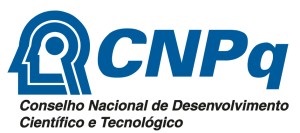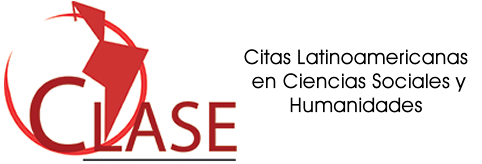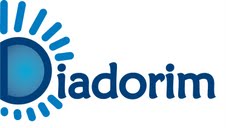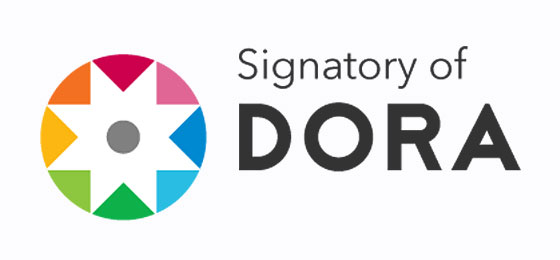The digitalization of the symbolic and the cultural-digital capitalism: the expansion of cultural-digital services in Brazil
DOI:
https://doi.org/10.1590/s0102-6992-201934010006Keywords:
digital-cultural capitalism, digitalization of the symbolic, cultural-digital markets, cultural-digital services, mobile digital mediaAbstract
The cultural-digital capitalism has as its core the process of digitalization of the symbolic. This process harbors four interdependent phenomena: 1) consolidation of streaming technology; 2) the global expansion of the use of mobile digital devices, especially smartphones; 3) digital convergence; 4) the advent and profusion of web 2.0, the Internet stage in which most of the content is created, distributed, shared and consumed by the users themselves. The interfaces between these four phenomena have allowed the world's largest digital technology corporations (Google, Amazon, Facebook, Apple and Microsoft) to become major art, culture and entertainment corporations, building new business models - cultural services, especially the provision of subscription services via streaming. Considering the cross-reference of different quantitative data about these phenomena, this paper intends to understand the expansion of cultural-digital services in Brazil in the last ten years.
Downloads
References
ADORNO, Teodor; HORKEIMER, Max. Dialética do esclarecimento. Rio de Janeiro: Jorge Zahar, 2000. [ Links ]
AGÊNCIA NACIONAL DE CINEMA (ANCINE). Relatório Anual de Gestão do Fundo Setorial do Audiovisual - Exercício 2016. Rio de Janeiro: Ancine, 2017. [ Links ]
ALVES, Elder P. Maia. A expansão do mercado de conteúdos audiovisuais brasileiros: a centralidade dos agentes estatais de mercado - o FSA, a Ancine e o BNDES. Caderno CRH - Ufba P (impresso), v. 30, p. 477-494, 2016. [ Links ]
BELL, Daniel. The coming post-industrial society. New York: Basic Books, 1973. [ Links ]
BENJAMIN, Walter. A obra de arte na época de sua reprodutibilidade técnica. In: BENJAMIN, Walter. Benjamin, Coleção “Os Pensadores”. São Paulo, Abril Cultural, 1980. [ Links ]
BOURDIEU, Pierre. As estruturas sociais da economia. Lisboa: Instituto Piaget, 2001. [ Links ]
CANCLINI, Néstor Garcia. Culturas híbridas. São Paulo: EdUSP, 2001. [ Links ]
CASTELS, Manuel. A era da informação: a sociedade em rede. São Paulo: Paz e terra, 2009. [ Links ]
COMITÊ GESTOR DE INTERNET NO BRASIL. Pesquisa sobre os usos das tecnologias de informação e comunicação nos domicílios brasileiros - Tic domicílios. São Paulo: CGIB, 2017. [ Links ]
ELIAS, Norbert. O processo civilizador, v. I e II. Rio de Janeiro: Zahar, 1993. [ Links ]
GRANOVETTER, Mark. The sociology of economics life. Montreal: Kobo Editions, 2018. [ Links ]
INSTITUTO BRASILEIRO DE GEOGRAFIA E ESTATÃSTICA (IBGE). Síntese dos indicadores sociais: uma análise das condições de vida da população brasileira. Rio de Janeiro: IBGE, 2017. [ Links ]
_____ . Acesso à Internet e à televisão e posse de telefone móvel celular para uso pessoal 2015. Rio de Janeiro: IBGE, 2016. [ Links ]
JENKINS, Henry. Cultura da conexão: criando valor e significado por meio da mídia propagável. São Paulo: Aleph, 2014. [ Links ]
J. LEIVA. Cultura na cidade. São Paulo: J. Leiva, 2018. [ Links ]
LEMOS, André. Cibercultura: tecnologia e vida social na cultura contemporânea. Porto Alegre: Sulina, 2002. [ Links ]
MARTEL, Frederic. Smart: o que você não sabe sobre a Internet. Rio de Janeiro: Civilização Brasileira, 2015. [ Links ]
MARTINHO, Luís Mauro Sá. Teoria das mídias digitais: linguagens, ambientes e redes. Petrópolis: Vozes, 2017. [ Links ]
ROGERS, David L. Transformação digital: repensando o seu negócio para a era digital. São Paulo: Autêntica Business, 2017. [ Links ]
SECRETARIA DE COMUNICAÇÃO SOCIAL DA PRESIDÊNCIA DA REPÚBLICA. Pesquisa brasileira de mídia. Brasília: Presidência da República, 2016. [ Links ]
SILVA, Ruana Maíra Alves Rufino. Panorama do VoD no Brasil. Perspectiva do VoD no Brasil e no mundo. Rio de Janeiro: Ancine, 2018. [ Links ]
TUERCHI, Lenita Maria; MORAIS, José Mauro. Políticas de apoio à inovação tecnológica no Brasil: avanços recentes, limitações e propostas de ação. Brasília: Ipea, 2016. [ Links ]
ORGANIZAÇÃO DAS NAÇÕES UNIDAS PARA A EDUCAÇÃO, A CIÊNCIA E A CULTURA (UNESCO). Cultural times. The first global map of cultural and creative industries. Paris: Unesco, 2015 [ Links ]
WEBER, Max. Economia e sociedade, v. I e II. Brasília: EdUnB, 1994. [ Links ]
WHITE, Andrew. Mídia digital e sociedade: transformando política, economia e práticas sociais. São Paulo: Saraiva, 2017. [ Links ]
WOLFF, Michael. A televisão é a nova televisão: a velha mídia na era digital. São Paulo: Globo, 2015. [ Links ]

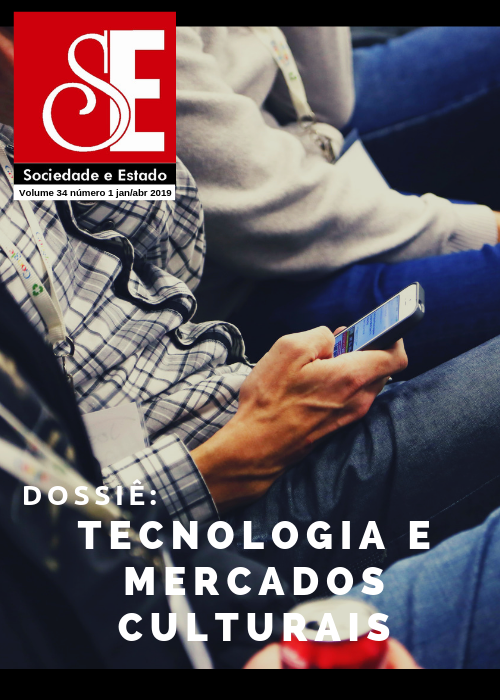


.jpg)

